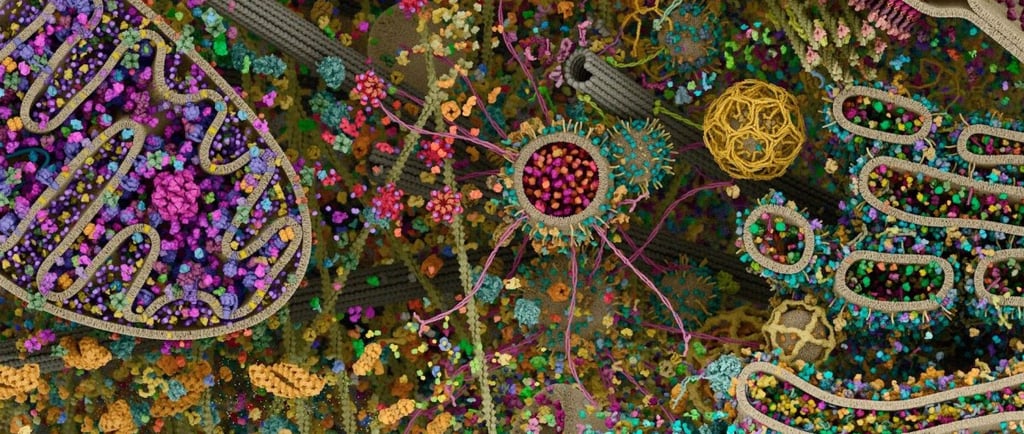Its spring break, but let’s get nerdy for a while. So I’m taking a Cell Biology class this Semester and so far it’s my most interesting class at State. While the class requires a lot of time commitment for tons of reading, assignments and review, the fascinating concepts I learn seem to be worth the demand. My favorite parts are learning new concepts and reflecting on how relevant those concepts are to our life, and the lessons we can learn from our own biological system on the microscopic level.
Imagine the world of a cell, about one millionth of a meter, where there’re so many activities going on every ‘hot second’ to sustain our life. In this cellular world, everyone (that is, a cell) is equally important, and one little mistake by one person could shut down the whole system that could also affect a whole galaxy of highly coordinated nearby cells (tissues). The high specificity in function of proteins and enzymes in our body cells is so remarkable and significant that an alteration in their structure can put an end to our life.
Let’s take type 1 diabetes for example. When you eat, the body breaks down food nutrients into smaller molecules (such as glucose) that can be assimilated into the bloodstream in the small intestine. For a glucose molecule, there are specific proteins in the cell’s plasma membrane that transport only glucose from intestinal walls into the bloodstream and then to body cells. Insulin, a protein produced by the beta cells in islets of Langerhans cells in the pancreas, is responsible for fixing glucose transporters (GLUTs) in cell membranes to allow glucose enter the cell for metabolism, through series of complex cellular reactions. So when the pancreas fails to make insulin, GLUTs are unable to bring in glucose from bloodstream, and your blood sugar level rises, showing that you’re diabetic. My point is, one mistake from a cell (or group of cells) generates series of problems for the whole organism.
I learned an important lesson from the principles of high specificity and continuous coordination implored by the lifetime activities of our own body cells. They work to their full potential, and coordinate with other cells to ensure that we are alive and healthy.
If we, as humans, could also strive to get better at attaining our full potentials, and work together to achieve common goals, we can solve the world’s problems. So, before you feel incompetent, lazy, selfish or discriminate against other people and their work, remember that you’re made up of 100 trillion cells that are individually working so hard to carry out their duties and coordinating with other cells 24/7 to keep you alive, strong, and healthy, and they expect you to do same.

